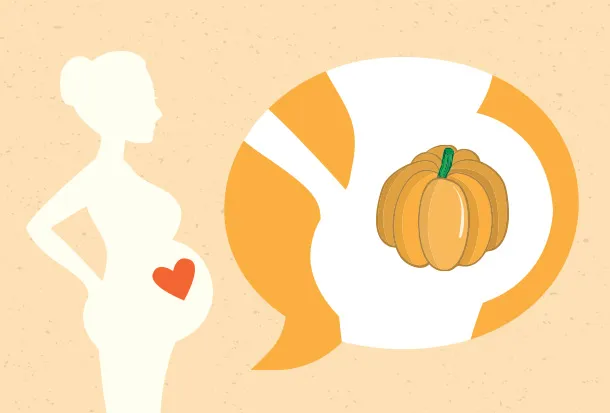The 35th week of pregnancy is a crucial time for the future mother. The complaints that accompany her become stronger. She is tired of them and cannot wait for the birth. In a multiple pregnancy, this can be the last chance to prepare for an upcoming birth.
In the 35th week of pregnancy, a woman’s uterus resembles the size of a watermelon. The baby continues to grow and take up more space, putting pressure on the mother’s internal organs. New and bothersome symptoms appear – including fear of childbirth. Fear of the unknown is completely natural and it is worth seeking advice from your doctor, midwife or experienced mothers.
Week 35 – which month is it and what changes in the woman?
The 35th week of pregnancy is the 8th month and the middle of the 3rd trimester. This is usually the time when an unexpected fear of childbirth appears. This is a natural phenomenon. Thoughts about how the birth will go are most stressful for women giving birth for the first time. It helps to talk to a doctor or a more experienced mother who can allay your fears.
In the 35th week of pregnancy, the discomforts start to become very bothersome for the woman. They are a sign that the baby is growing and the body is preparing for birth. Unpleasant symptoms are:
- Shortness of breath – its cause is the baby’s pressure on the diaphragm, so it is worth getting more rest during this time and preparing for the next stage – motherhood;Heartburn – Heartburn is caused by pressure on the stomach
- Heartburn can be relieved by changing your posture. Lying on your left side prevents stomach acid from flowing back into the oesophagus and you feel much better
- Frequent trips to the toilet are normal during this time of pregnancy and should not be a cause for concern. Pressure on the bladder can also cause involuntary urination. This is understandable for a pregnant woman and the use of appropriate sanitary towels is sufficient
- Abdominal pain that occurs in the 35th week of pregnancy is due to the uterus stretching to accommodate your growing baby. It can also be a sign of labour, especially in multiple pregnancies
- Leg cramps, which occur mainly at night. They can be caused by swelling or a magnesium deficiency. Consider magnesium supplementation with your doctor.
In some cases, the expectant mother may be anaemic. It is important to remember that iron deficiency needs to be supplemented in pregnancy, although supplementation may cause constipation.
What is the baby’s weight in the 35th week of pregnancy? Development of the baby
During this time, the baby usually weighs over 2 kg and measures about 40 cm. On an ultrasound scan in the 35th week, you can see him sucking his thumb or whole fist. This is the time when the baby is growing intensively – he should gain about 150-200 g per week while increasing his body fat.
In the 35th week of pregnancy, the baby prepares to function outside the mother’s body by, among other things, drinking the amniotic fluid and then urinating. This ensures that the baby’s kidneys work properly. It also collects antibodies that protect it from infections soon after birth. It also stores iron.
From the beginning of the 35th week, the baby begins to react to external stimuli. If mum holds onto its belly, it is likely to retaliate by kicking. He often fidgets, which can lead to waking up from sleep.
35th week of pregnancy – delivery
A birth during this time is very likely, especially if it is the 35th week of a twin pregnancy. Most such pregnancies end in premature birth. This is due to a lack of space in the uterus. Newborn twins often need help breathing, although this is not the rule and in many cases they manage on their own. Babies from multiple pregnancies are born smaller, but gain weight in the following months and develop well.










